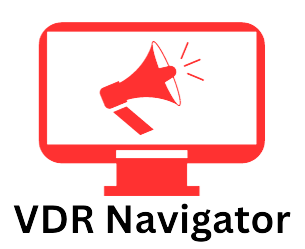Virtual Data Rooms (VDRs) have revolutionized the rapidly changing banking industry, where sharing confidential data is essential. Document Exchange in Banking has surpassed conventional techniques. This essay explores how Virtual Data Rooms have revolutionized safe and effective document management.

Recognizing the Change in Document Sharing
By definition, the banking industry handles a wide range of private papers, from contracts to financial statements and client data. Conventional document distribution techniques, such as snail mail and in-person handovers, are time-consuming and present security hazards. It became clear that a safe and quick solution was required in the digital age, where information moves at light speed. Go into the virtual data rooms.
Virtual Data Rooms: What Are They?
Before further detailing their function in banking, let’s clarify what virtual data rooms are. VDRs are safe internet repositories for exchanging and keeping confidential data. They offer a safe space for the access, viewing, and secure exchange of documents. Virtual platforms have completely changed how companies manage sensitive data, particularly in the banking industry.
VDRs Function in Document Security
Virtual Data Rooms are a shining example of innovation in the rapidly changing banking industry, where efficiency and trust are paramount. They enable safe document interchange and herald a new age of banking operations.
Protocols for Enhanced Encryption
Security is a major problem in document exchange, and VDRs provide strong encryption mechanisms to solve this. These rooms use cutting-edge encryption methods to guarantee that the data is unreadable and useless even in the event of illegal access.
Fine-Grained User Access
Encryption is only one aspect of security; access control is another. Administrators may establish precise permissions using VDRs, controlling who can access, modify, download, and distribute particular documents. This function provides additional security, particularly when handling private financial data.
Accountability via Audit Trails
VDRs employ extensive audit trails to maintain an exacting record of every user action. This improves accountability while making it possible to go back and see who saw what and when. This function is crucial for banks to ensure they adhere to regulatory regulations.
Simplifying the Processes of Due Diligence
Due diligence is crucial in some financial transactions, including mergers and acquisitions. By offering a centralized platform for document exchange and review, VDRs simplify this process. This reduces the possibility of mistakes related to manual paperwork handling and expedites the due diligence schedule.
Economy of Cost and Time Savings
Virtual Data Rooms are a shining example of innovation in the rapidly changing banking industry, where efficiency and trust are paramount. They enable safe document interchange and herald a new age of banking operations.
Lower Expenses for Physical Storage
Conventional document storage techniques require hefty upkeep, security, and physical space. By giving users access to a virtual place for document storage, VDRs reduce these expenses. This helps to reduce costs while also freeing up actual real space.
Quick Decision-Making Procedures
Time is money in the hectic world of finance. VDRs speed up decision-making by providing instant access to crucial documents. Accessible papers stored in a safe online location might be essential for investments with short lead times or regulatory compliance.

Combining Collaboration Tools with Integration
VDRs provide smooth integration with various collaboration tools in the age of remote work and digital collaboration. This makes it possible for teams to collaborate on papers without regard to where they are physically located. Professionals in banking who work remotely across branches or even nations find this degree of accessibility to be quite helpful.
Document Exchange in Banking: Its Future
Virtual data rooms will play an increasingly important role in document interchange as the banking industry continues to embrace digitization. The flexibility, efficiency, and security provided by VDRs are ideal for meeting the changing demands of the sector. The uses of VDRs are numerous and ever-changing, ranging from regulatory compliance to client onboarding procedures.
In summary: Document Exchange in Banking
In conclusion, introducing Virtual Data Rooms has ushered in a new era of safe document sharing in banking. These online platforms help create a more effective and economical document management system and address urgent security issues. It is not only a choice for banks to integrate VDRs into their operations; doing so is a strategic need as they manage the challenges of the digital age.
FAQs: Document Exchange in Banking
To get the answers to your inquiries, consult our FAQs! Carefully select facts that will help you solve your difficulties quickly.
Q1: What does document exchange mean in the banking industry, and why is it important?
Within the banking industry, document exchange pertains to the safe exchange and transmission of private data, including financial accounts and legal records. It is essential because reliable and secure document transmission forms the basis of many banking processes, including client onboarding and regulatory compliance.
Q2: How might virtual data rooms improve financial document security?
A: Virtual Data Rooms (VDRs) use sophisticated encryption techniques, provide fine-grained user rights, and keep thorough audit trails to improve document security in banking. When taken as a whole, these precautions guarantee that private information stays that way and that only authorized workers may access it.
Q3: Can virtual data rooms help banks with their due diligence procedures?
A: Unquestionably. The unified platform VDRs offer for document exchange and review greatly expedites the due diligence procedures in the banking industry. By doing this, you not only save time but also lower the possibility of mistakes that come with processing papers by hand.
Q4: How do VDRs contribute to cost-efficiency in banking operations?
A: Virtual Data Rooms (VDRs) help banks save money by removing the requirement for physical storage space and related expenses. These rooms’ virtual format lowers costs while facilitating faster, more cost-effective document handling.
Q5: Are Virtual Data Rooms user-friendly for banking professionals?
A: It’s true that user-friendliness was considered when designing VDRs. These platforms provide banking professionals with accessible and user-friendly interfaces and seamless interaction with collaborative tools, regardless of their level of technical skill.
Q6: How can Virtual Data Rooms (VDRs) enable remote work in the banking industry?
A: Virtual Document Rooms (VDRs) enable banking professionals to operate remotely by viewing, sharing, and collaborating on documents from any location with an internet connection. Given the current digital landscape and the increasing prevalence of remote work in the banking sector, this degree of flexibility is extremely important.
Q7: Can VDRs be customized to suit the unique needs of different banking operations?
A: Unquestionably. Because virtual data rooms are so flexible, banks may easily customize the platform to meet their unique requirements. VDRs are flexible enough to accommodate the specific needs of different financial operations, whether it’s stipulating user permissions, coordinating with current systems, or adhering to regulatory obligations.
Q8: How can VDRs help banks make decisions more quickly?
A: Virtual document repositories (VDRs) help banks make quicker decisions by facilitating rapid access to critical papers. When information is easily accessible in a safe online environment, it facilitates timely decision-making in a field where time is of the essence. This improves overall operational effectiveness.

